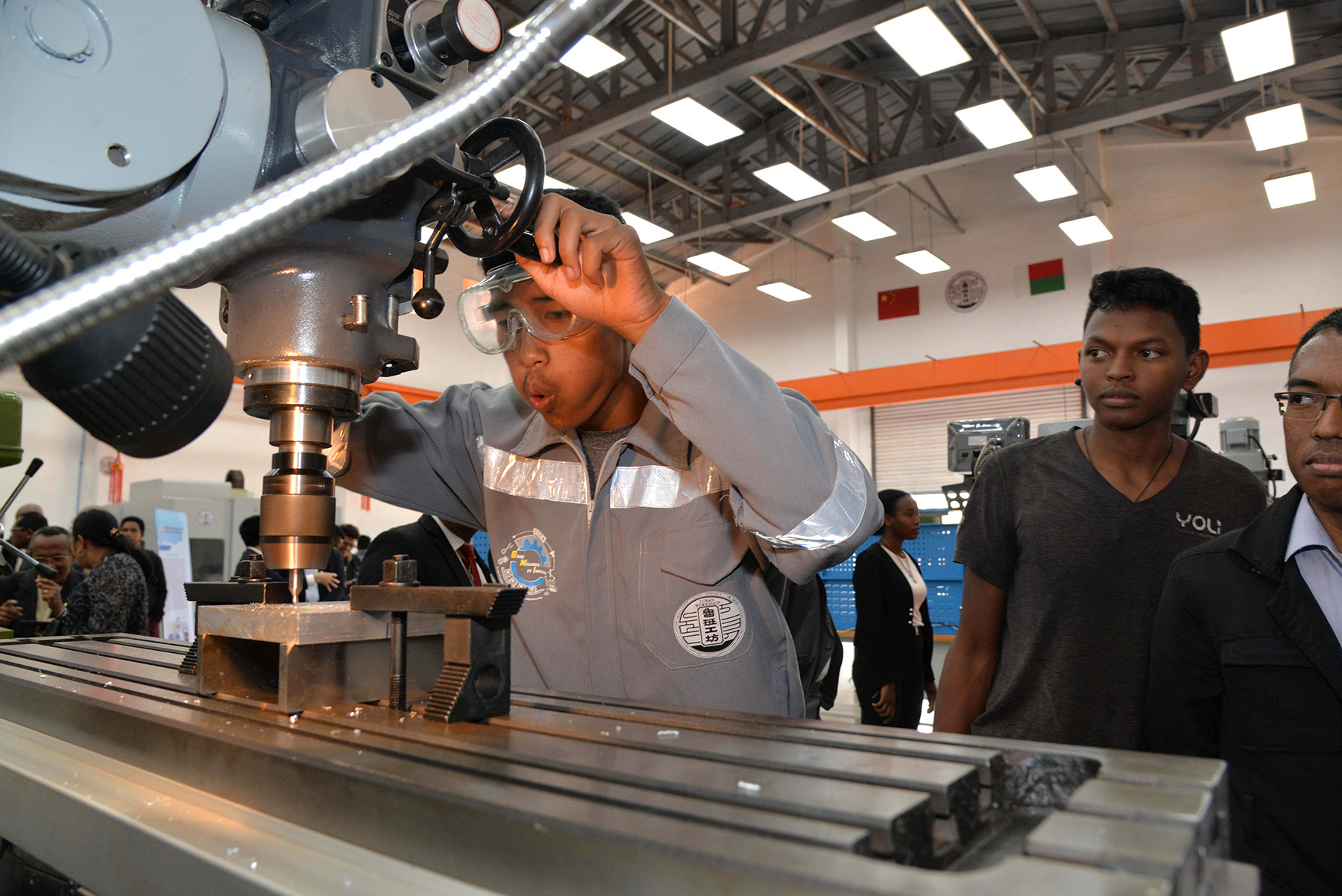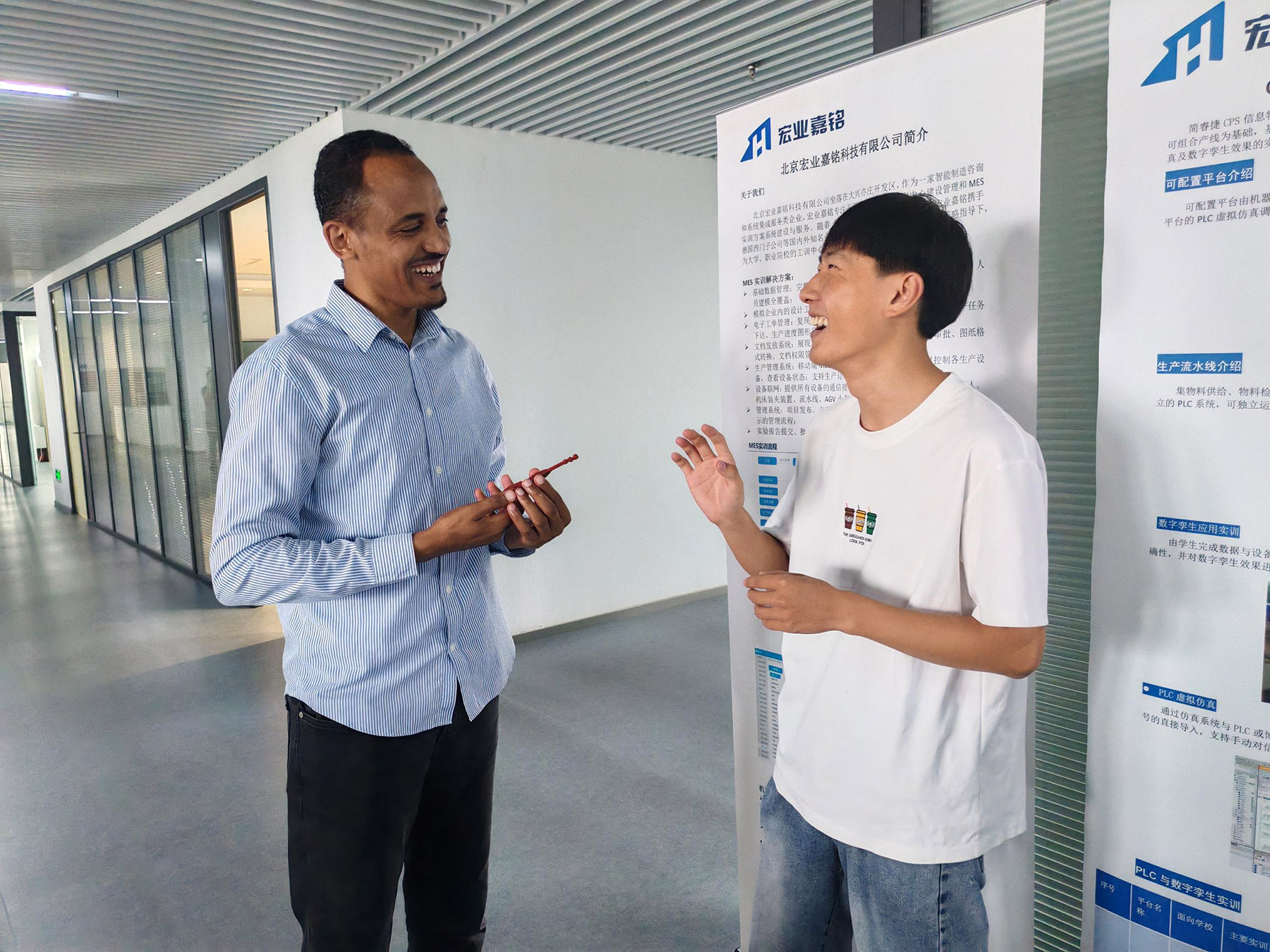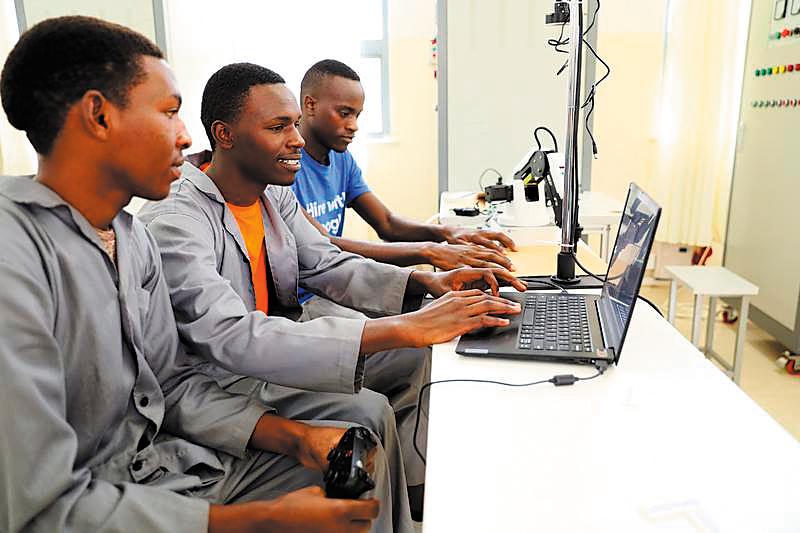Training centers play crucial role by honing graduates' professional skills and guiding them toward successful careers

Tola Tsegaye Alemu, a 34-year-old PhD student at the Tianjin University of Technology and Education and a key instructor at the Luban Workshop in Ethiopia, has garnered international recognition for his profound insights into teaching methodologies among the 33 workshops spanning Asia, Europe and Africa.
The Ethiopian teacher is currently receiving invitations to various international forums, including the upcoming Second World Vocational and Technical Education Development Conference scheduled to take place in Tianjin later this year. They are aimed at enhancing the vocational technological skills of African students.
"Africa's vocational education is still in its starting stages due to challenges such as inadequate infrastructure, varying materials and teaching resources. Consequently, certain vocations face difficulties in some countries, lacking established models to guide students toward successful careers. The Luban Workshop plays a crucial role in addressing these challenges and fostering improvement," he said.
READ MORE: 'Tailored solutions' help fill Africa's grain bags
Alemu serves as an educator at the Technical and Vocational Training Institute in Ethiopia, where a Luban Workshop was established three years ago through a collaboration between his institute and Tianjin University of Technology and Education, or TUTE.
His university stands as a leading vocational institution in Ethiopia, the headquarters of the African Union, and is recognized for its high-quality personnel training and educational programs.
Top-tier educators
The Luban Workshop has been endorsed by the AU as a premier training center, producing top-tier educators for more than 10 vocational universities across Ethiopia, Kenya, Tanzania and Uganda.
Alemu's presentation on the workshop's teaching model — the EPIP model (Engineering, Practice, Innovation, and Project) — received international acclaim during the workshop's third-anniversary celebrations in July.
His journey began with research on Lu Ban, an ancient Chinese woodcraft master and inventor, and the EPIP teaching model, developed in collaboration with Lyu Jingquan, vice-president of TUTE and one of the workshop's initiators.
Over the years, Alemu has applied this model with his students and fellow educators, culminating in successful outcomes.
After three years, he said he witnessed a positive impact of the Luban Workshop in his country, with graduates securing promising job opportunities, including positions with foreign companies operating in Ethiopia. "They operate robots with high skills they've learned from the workshop," Alemu said.

These graduates showcase advanced skills acquired at the workshop, enabling them to proficiently operate robots and excel in their respective fields.
To date, the Luban Workshop initiative in Africa has expanded significantly since its inception in March 2019, with 17 Luban Workshops established in 15 countries, such as Egypt, Nigeria and Cote d'Ivoire.
Offering diverse majors, including railway, machinery, electrical equipment, manufacturing, automobile, information technology, metallurgy, and e-commerce, the workshops have empowered more than 10,000 young people.
The Luban Workshop is also offering training programs in Tianjin, exemplifying its commitment to global educational collaboration.
Notably, in September 2023, 12 Moroccan students completed a short-term training program at the Luban Workshop in Morocco before embarking on a three-year undergraduate program at the Tianjin College of Commerce in China, specializing in cross-border e-commerce, according to Ma Lei, Party secretary of the college.
"The collaboration … aligns with the vision of Moroccan King Mohammed VI to enhance youth labor skills and cultivate high-skilled labor in emerging industries," he said.

Growing demands
The students are expected to meet the growing demands of Morocco's e-commerce market, which has sustained an annual growth rate of more than 20 percent, he said.
The cultural exchanges facilitated by the Luban Workshop extend beyond technological expertise, fostering a deeper understanding of Chinese culture among participants.
Alemu, known by his Chinese name Tu Zegang, draws inspiration from the traditional Chinese term — wu yu ze gang, namely "without greedy ambition, people have true strength from heart".
His presentation on philosophy and figures such as Mozi, during the Warring States Period (475-221 BC) and the great inventor Lu Ban, resonated with Chinese educators and students.
Many Chinese experts hailed Alemu's presentation on Chinese culture and history.
ALSO READ: Talks put solidarity in spotlight
Through initiatives like the Chinese Clothing Culture Month organized by the Tianjin College of Commerce, participants such as El Ouatiq Mohammed, who has the Chinese name Long Mude, have embraced Chinese traditions and symbols, such as the dragon, symbolizing luck, prosperity and bravery in Chinese culture.
"I understand that the Chinese hold long — the dragon — in high regard, as it symbolizes luck, prosperity and bravery. This is why the character long is incorporated into my Chinese name," he said, while previously many Westerners could not understand it and often mistook the Chinese dragon with the dragon in the West, which represents rudeness and evil in some fields.
These cultural exchanges not only enrich the educational experience but also strengthen the bonds between nations, promoting mutual understanding and appreciation.


